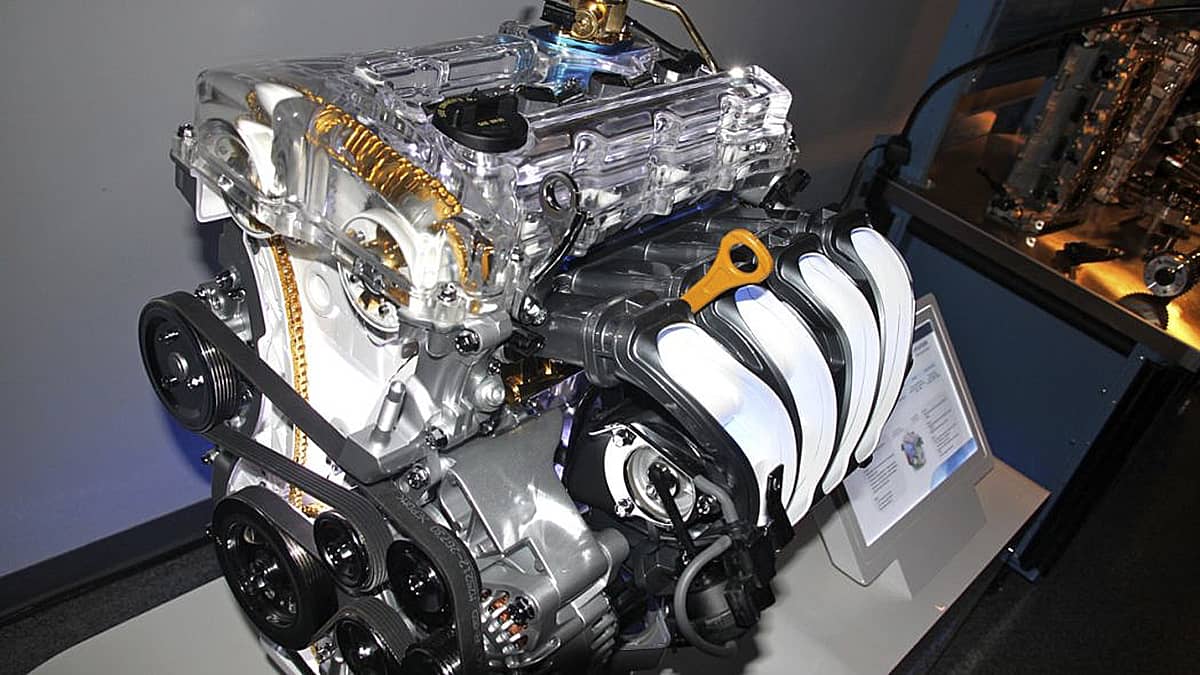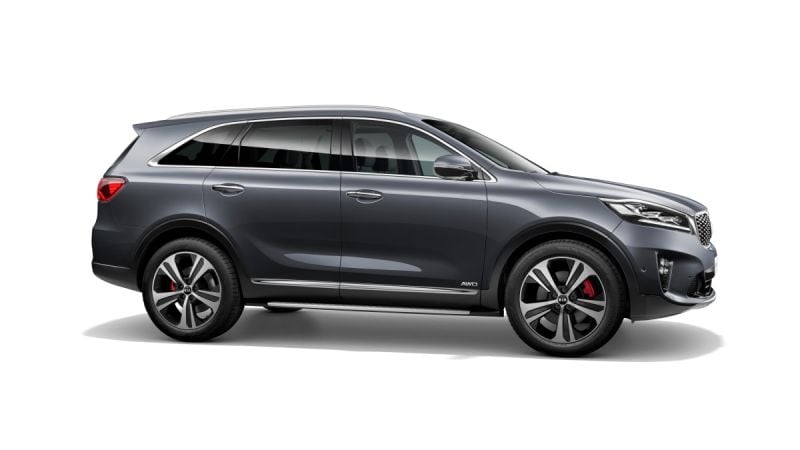My curiosity regarding the experience of fellow Hyundai and Kia owners prompted me to scout out the Kia Forum, and my latest find did not disappoint. While some would say that Hyundai and Kia are, currently, doing what Toyota did some 20 years ago, there are also known issues that plague some of the Korean models. One Kia Sorento owner finds himself in an interesting predicament as his 2017 SUV consumes abnormal amounts of oil. Here's what he says:
"I have a 2017 Sorento with the 2.4L at 115kish miles. I was reading the TSB from Kia on the oil consumption and I am may be over their limits for how fast it's losing oil, but I was wondering if I don't have rock solid history of oil change, will Kia basically deny a new engine even if my oil consumption is over the limit? I know I went over the mileage a few times at least, but nothing crazy like 5k over. I have never gotten any work done at the dealer besides a few oil changes, so I doubt they'll do it as a courtesy without more history there.
If Kia does not provide a new engine, is my best course of action to just keep topping off the oil every week until I end up getting a new car? Can this realistically last for a few years if I keep adding oil and make sure it never runs low/dry? Is there any other preventative maintenance I can do to keep this going till 150-200k?"
I see a problem right away in the owner's description of the problem. Going 5,000 miles over the recommended oil change interval a couple of times is no joke. In my experience, regardless of the engine or what the manufacturer says, change the engine oil no later than 6,000 miles or 12 months. Yes, some engines are less susceptible to problems related to irregular oil changes, but eventually, problems occur.
The NHTSA investigation

The 2017 Kia Sorento in question comes equipped with a 2.4-liter gasoline engine from the Hyundai/Kia Theta engine family. All of these engines are known to be very problematic, due to poor manufacturing, causing a significant number of engines to develop abnormal amounts of noise and to seize. The Theta engine family has been burning a hole in Hyundai's pockets and continues to plague even newer models.
Over 1.7 million Hyundai and Kia vehicles are affected by this. Still, I have to give credit to Hyundai for issuing its latest mass recall that affects over a million vehicles, some of which over 10 years old. Then, there is the issue of high oil consumption, which, from what I found out, isn't being handled in the best way.
According to the technical service bulletin, if the engine's oil consumption is less than 1 quart per 1,000 miles, the engine will not undergo repair. If the oil consumption is more than 1 quart per 1,000 miles, the engine will be subject to a repair.
In my experience, a problem-free normally aspirated engine shouldn't consume more than a quart of oil per 6,000 miles. To put things in perspective, the Lambda V-6 engine in my Hyundai Genesis Coupe was losing about a quart of oil every 6,000 miles due to a leaky front main seal and valve cover gasket.
Turbo engines tend to burn a bit more by design, because of the turbocharger's lubrication requirements and the fact these engines generate more heat. Also, turbo engines traditionally use thinner piston rings for reduced drag.
Some fellow forum members have chimed in with potential solutions to the problem, but it may be too late at this point.
Rhysoul says: “I don’t think they’d give you a new engine right away, they’d do the oil consumption test first (you come back every 1000 miles 3 times) and if that fails, they’d try a top end cleaner (fancy piston soak).
But if they deny all that, I would try at least three or four 4,000-mile oil changes with Valvoline Restore and Protect 5w30. It’s designed to clean up the engine and specifically the oil control rings, and may help reduce your consumption. Been hearing pretty good reviews on it so far. I’d try that before dumping the car.”
Missingcurlybracket says: “It’s a Kia direct injection 2.4L, it could very well sh*t the bed tomorrow as they’re known to do and it wouldn’t necessarily be your fault at all.
How many miles are we talking anyway? 8000+ is pushing it. You’ll probably want to do 3,750-mile intervals according to the manual’s severe schedule which likely applies to you.
The manual probably says 7,500 normally, but don’t exceed 5,000 for this. you can do it in other cars, but not these.
Just monitor oil level, keep receipts, hope for the best.
There are others like coolant, brake fluid, trans fluid, rear diff/transfer case if you have an AWD, but the coupler itself is destined to eventually fail and that’s a couple grand if you want to keep AWD. (@118k for me)
PCV valve change might help consumption.
I don’t bother with the fancy oils personally unless given a specific reason but worth a shot.
Ensure the KSDS engine update was applied by the dealer in the past for the warranty on the bottom end.
And remember, if you do everything right, you might still have to pull teeth at the dealer. There have been terrific and less-so experiences, so just hope for the best.”
Final thoughts
While there is no definitive proof that the oil-change intervals have not been religiously kept up with (aside from the owner's confession), any sludge buildup, found upon inspection, could be used by the dealer as an excuse not to replace the engine. If we take the owner's word for granted, it sounds like the 2.4-liter engine in this 2017 Sorento is consuming more than a quart of oil per 1,000 miles.
While the 150,000-mile goal is not unrealistic, it may be time to think for an engine overhaul or a replacement engine. Some variants of the Hyundai/Kia Theta engines are still in production, on some markets, but they are gradually being phased out in favor of the new Smartstream engines.
If you have a similar experience or any insights, I would love to hear about them in the comment section below, so we can provide a more informative article for future reference.
Dimitar Angelov's automotive interests made him an expert in a wide variety of vehicles. Japanese brands like Toyota are closest to his heart, although performance cars in general are his favorite segment, which is why he is constantly on the lookout for the best deals on the market. Dimitar Angelov's car passion and knack for the written word led him to complete a Master of Arts in Media and Communications, and classic car restoration. Dim is happy to get behind the wheel of any car and share his impressions. You can follow Dimitar on X, Linked-in, Instagram, and Facebook.
Image source: 2017 Kia Sorento
Set Torque News as Preferred Source on Google












Comments
Hi, I found this post l/blog…
Permalink
Hi, I found this post l/blog & thought I'd add my time line! Every consumer needs to know. As of yesterday I have "traded in" a car that was picked up and died 3 days later. They put spark plugs in on January 21st and car randomly didn't start on the 24th. My mechanic spent 5 hours and couldn't figure it out! My thought are 1, maybe i really peeved off service guy and he did something to it, or 2 it was left in 2ft of snow after being at the shop for 14 days and maybe some water/condisation leaked into electrical?
This is the time line sent sent to GM and service at local dealer South Attleboro Massachusetts as well as corporate, (mind you corporate escalated but never followed up and its thr third case opened in a year).
Dear xxx or acting general manager,
I am writing to formally escalate an ongoing and unresolved service issue regarding my Kia Sorento and my experience with your service department. Given the seriousness of the situation and the lack of clear communication, I believe it is important you are made aware directly.
Vehicle Background & Timeline
• I purchased my Kia Sorento new from your dealership in October 2020.
• In May 2025, the vehicle presented with a blinking check engine light and P1326 code, along with knocking and in limp mode. The knock sensor was replaced at that time.
• In September, I returned with the check engine light on again. I was informed that all four spark plugs had failed, and the car needed an oil valve cover replacement under power train. Despite the obvious connection, I was told I had to pay out of pocket because the dealership “could not prove” all plugs failed simultaneously. Service gentleman, (not xxx name) stated he was aware it likely was the oil issue, but cant prove to corporate to approve/deny. I was renting a vehicle and like any of us neded my own vehicle back that I maje monthly payments on.
• Approximately 3.5 months later, the vehicle again experienced warning lights. The fourth cylinder failed, and I brought the vehicle in immediately.
• On drop-off, I was initially contacted to authorize and pay for yet another spark plug—despite those plugs having been installed by your dealership only three months earlier.
• Two days later, I received a text message from the lead technician’s personal phone stating that I “need a new engine,” citing oil consumption. I was not provided any diagnostic data, test results, or explanation as to how this conclusion was reached.
I was then told that because I could not immediately provide every oil change receipt (I am still gathering records from local mom-and-pop shops), the dealership would not submit my vehicle to Kia Corporate for engine replacement or goodwill review.
-Warranty & Known Engine Defect
As you are aware, the 2.4L Theta II GDI engine is widely known for catastrophic failure. Kia Corporate has confirmed to me that when I presented with a blinking engine light and P1326 code, I should have provided the extended 150,000-mile warranty, and that submission is the responsibility of the franchised dealer.
I am also aware that many dealers submit these claims regardless of receipt gaps and that the cost to submit is minimal, pending approval or denial (good will). Refusing to submit entirely is unacceptable, Im sorry but thats the dealers choice and it's a poor choice e
Xxx(Lead service gentleman) says he's seen many denials or not it warrants a submission due to sone gaps in oil changes. That should be corporate decision not the dealer.
I currently have under 100,000 miles, (upon drop off 1/8) and my warranty expires in approximately 400 miles, making the delay especially concerning.
---Communication & Conduct Concerns
There has been a stark contrast in professionalism within your service department:
• One service advisor (who initially advised me to bring the vehicle in and reassured me it would be inspected thoroughly), was kind, attentive, and professional.
• Another advisor—who I believe is named xx x, and who I have dealt with all three visits—has been dismissive, vague, and unprofessional. Staff members appear hesitant to speak freely around him.
• I was told calls and voicemails were left for me and my husband. Neither of us received a single call, despite repeated requests to contact my husband beginning on January 9.
• Critical updates have been sent via text from a technician’s personal phone rather than through official channels.
I have also been repeatedly steered toward sales, including comments such as “This guy works miracles,” which feels inappropriate given the unresolved warranty issue and raises concerns about pressure to trade rather than repair.
--Loaner & Financial Burden
During my last two warranty-related services, no loaner vehicles were available, costing me approximately $1,500 in rental expenses. This time, I was told a loaner would cost $86 per day, a figure that does not appear anywhere on the paperwork I signed. It states $40 /day is covered by corporate. At least the spark plug /swould be covered to start since you just put them in recently.
I am a registered nurse and a mother of 4 & this is my only vehicle.
---Unresolved Sales Promises since start.
When I purchased the vehicle new off your lot, I was promised either six free oil changes or a remote starter due to a cracked windshield discovered at delivery. Sakenan saud "Gere in NA insurance covers glass gor free." Despite calls, texts, emails, and follow-up with multiple employees (including xxx and xxx), this was never honored.
--Current Status & Escalation
At present:
• I am being told I need a new engine.
• No formal diagnostic explanation has been provided.
• No corporate claim has been submitted.
• I am being pressured toward sales while my vehicle remains unrepaired.
• I am concerned I may be charged excessively just to retrieve my vehicle if I choose to tow it elsewhere.
I have already filed a report with NHTSA and am preparing complaints to the BBB and Attorney General’s Office, and I am awaiting legal counsel. Before moving further, I wanted to give you the opportunity to review this matter.
Requested Resolution
I am asking for:
• Immediate submission of my vehicle to Kia Corporate for engine replacement or goodwill consideration.
• Clear written documentation explaining the engine failure determination, (I've asked for an email with this determination with NO response).
• Reasonable accommodation for transportation while this warranty matter is resolved.
• Professional, transparent communication moving forward.
This vehicle was well-maintained, driven responsibly, and ran well until these widely documented engine issues began. This is my third Kia and second Sorento, and I would consider Kia again—but not under these circumstances or with this level of service.
Please advise on next steps as soon as possible. I need a safe, reliable vehicle for my family.
Thank you for your time and attention.